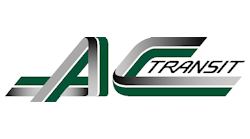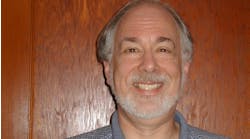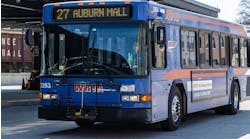The Alameda-Contra Costa Transit District (AC Transit) has announced its participation in the Fuel Cell Electric Bus Commercialization Consortium (FCEBCC). The consortium is a comprehensive initiative sponsored by an $8.5 million grant from the California Air Resources Board (CARB) through California Climate Investments, a statewide program that puts billions of cap-and-trade dollars to work reducing greenhouse gas emissions, strengthening the economy and improving public health and the environment – particularly in disadvantaged communities. Additionally, the Bay Area Air Quality Management District (BAAQMD) is providing $1 million for the project, which will deploy 10 zero-emission hydrogen fuel cell electric buses in the AC Transit service area and make upgrades to an existing hydrogen fueling station at AC Transit’s Emeryville operating division.
The goal is to reduce greenhouse gas emissions and local tailpipe emissions and thereby improve the environment and health for some the state’s most vulnerable communities.
“We are excited to receive this new award of innovative green technology buses,” said AC Transit Board Member, H.E. Christian Peeples. “AC Transit has already operating a small fleet of next-generation buses and this award will allow for a dramatic leap forward in meeting the Advanced Clean Transit Regulations target of operating all zero-emission buses by the year 2040.”
The Center for Transportation and the Environment (CTE) will provide project management and oversight. Under this consortium award, 10 zero-emission buses will be deployed to AC Transit and another 10 zero-emission buses deployed to the Orange County Transportation Authority (OCTA). OCTA will also be the recipient of a new hydrogen fueling station. Each of the 40-foot zero-emission buses will be manufactured by New Flyer – a leader in zero-emission bus production in the United States. New Flyer has partnered with Ballard Power Systems in the design and installation of each buses fuel cell power plant.
“We have proven that zero-emission hydrogen fuel cell buses can be a one for one replacement for diesel or CNG,” said General Manager, Michael Hursh. “Our current fleet of zero-emission buses need only be fueled once a day, and they perform admirably for miles along our vast transit network and its challenging topography.”
In 2005, AC Transit unveiled its first fleet of zero-emission, hydrogen fuel cell electric buses. The HyRoad Program, initially consisted of three buses that ultimately transported more than 700,000 passengers over 270,000 revenue miles. The existing fleet of 13 zero-emission buses now has more than 1.8 million miles of services and carried more than 15 million passengers. Linde North America currently operates two hydrogen production and dispensing stations for AC Transit’s hydrogen fleet. The combined fueling stations have produced than 300,000 kilograms of hydrogen fuel; equivalent in energy to nearly 300,000 gallons of diesel, but without any harmful effects. Fuel cells do not burn the fuel they use. Instead, they combine hydrogen with oxygen from the air electrochemically to produce electricity and emit only pure water vapor.
The consortium aims to have AC Transit’s and OCTA’s buses delivered and in service for everyday use by December of 2018.


